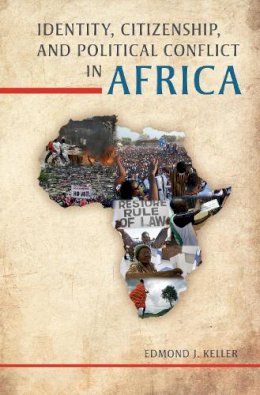7%OFF

Stock image for illustration purposes only - book cover, edition or condition may vary.
Identity, Citizenship, and Political Conflict in Africa
Edmond J. Keller
€ 26.99
€ 25.17
FREE Delivery in Ireland
Description for Identity, Citizenship, and Political Conflict in Africa
Paperback. Reconsiders how national identity has been understood in Africa and presents new approaches to identity politics, intergroup relations, state-society relations, and notions of national citizenship and citizenship rights. Num Pages: 222 pages, black & white illustrations. BIC Classification: 1H; GTB; JPFN. Category: (P) Professional & Vocational. Dimension: 230 x 153 x 17. Weight in Grams: 346.
Reflecting on the processes of nation-building and citizenship formation in Africa, Edmond J. Keller believes that although some deep parochial identities have eroded, they have not disappeared and may be more assertive than previously thought, especially in instances of political conflict. Keller reconsiders how national identity has been understood in Africa and presents new approaches to identity politics, intergroup relations, state-society relations, and notions of national citizenship and citizenship rights. Focusing on Nigeria, Ethiopia, Cote d'Ivoire, Kenya, and Rwanda, he lays the foundation for a new understanding of political transition in contemporary Africa.
Product Details
Publisher
Indiana University Press United States
Number of pages
222
Format
Paperback
Publication date
2014
Condition
New
Number of Pages
208
Place of Publication
Bloomington, IN, United States
ISBN
9780253011848
SKU
V9780253011848
Shipping Time
Usually ships in 7 to 11 working days
Ref
99-1
About Edmond J. Keller
Edmond J. Keller is Distinguished Professor of Political Science at the University of California, Los Angeles. He is author of Revolutionary Ethiopia: From Empire to People's Republic (IUP, 1988) and "Trustee for the Human Community": Ralph Bunche and the Decolonization of Africa.
Reviews for Identity, Citizenship, and Political Conflict in Africa
Keller shows a strong understanding of the political dynamics at play in the discourse around identity and citizenship in Africa. He does not declare a one-size-fit-all attitude in his analysis of the various countries used as case studies. By consciously declaring that there is no one way to read civil conflict in modern Africa, he makes the book an obvious ... Read more
